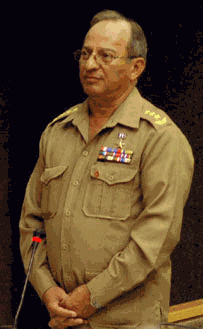The first of the two BEC resolutions (“Interlocking SACP-ANC leadership cores”) seems redundant (i.e. unnecessary) in its present form. The resolution does not spell out what it thinks the coming Special Congress should decide. It only says that it, and the Party beforehand, should discuss certain things. But there is no question that there will be a debate about such things, bearing in mind that the Special Congress has been called for the purpose, and that we are in a pre-Congress discussion period.
The second BEC resolution ("The implications of Polokwane &c...") does propose an action of the Special Congress. It proposes that, by prior agreement with the ANC, 10% of the [successful] candidates in the next Parliamentary election should be allocated to SACP nominees, “with the party enjoying the right within a broad Alliance strategy to direct them as well as to recall them”. The first question about this is: Why only 10%?
But the main problem is that the SACP Constitution, Rule 6.4, expressly forbids this kind of arrangement. There cannot be an SACP caucus within the ANC, because the SACP Constitution forbids it. What is more, the unique relationship between the ANC and the SACP has been built upon the foundation of Rule 6.4. Because of that rule, the ANC comrades have been able know that we are not plotting in their midst. Hence the Party is not likely to scrap Rule 6.4 and therefore the second BEC resolution becomes impossible.
But we will discuss them. The Communist University is not a plenary. The Johannesburg Central Branch is the plenary and it meets on 6 April. Meanwhile, Johannesburg Central Branch members could do well to reflect upon whether the Branch has been exercising any kind of direction on Johannesburg Councillors who are Party members. This is because very serious problems are about to explode in Johannesburg and people, both inside and outside the Party, are going to want to know where those SACP-card-carrying Councillors stand.
The Johannesburg Metro Council, although its income is rising, is going to take away the free 6 kilolitres of water, and reduce the free electricity allocation to a paltry 500KWh, and there is much more to this gross attack on Johannesburg’s workers and poor. It is too much to summarise today and it has probably not yet been completely revealed, but the last three items, put on the “Joburg” web site, in the last few days (26-28 April), give quite a good idea of what is intended, if you read between the heavy spin-doctoring of Emily Visser and Virgil James.
It amounts to the fact that huge changes are to be made and enormous extra burdens thrown on to the shoulders of the workers and the poor, and that these changes are “open for comment” only up to 25 April 2008 (or in another version, 30 April 2008). The only channels offered so far for such public inputs in this city of millions are three e-mail addresses, one fax number, and one person’s telephone numbers! We must demand proper public hearings, comrades! We did not vote for this!
The contacts that are given for comments on the cuts are as follows:
velih@joburg.org.za
Lennette Fouche on fax number 011 339 2870 or via email on lennettef@ioburg.org.za
Shenaaz Hoff via email on shenaazh@ioburg.org.za
Virgil James, Communications Specialist, City of Joburg, Tel: 011 407 7226, Cell: 082 467 9415
Click on these links:
SACP Jhb Central drafts, 12th Congress resolution, and Rule 6.4 (1673 words)
Joburg Metro wants to kill people’s water and electricity allowance (940 words)
Residents invited to have their say on city tariffs, Joburg (1115 words)
Calls for comment on City budget, Joburg Metro (592 words)
Events Diary


















